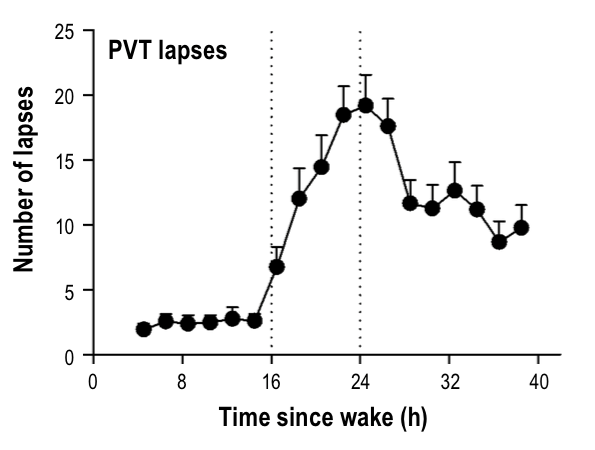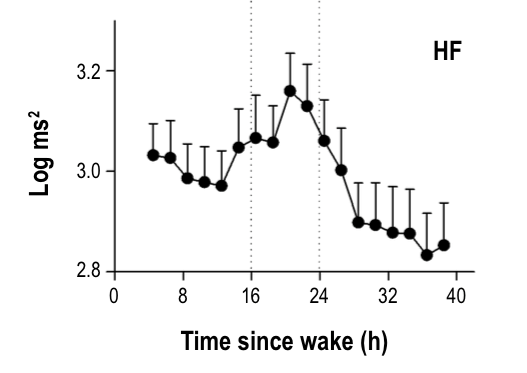Sleep Deprivation
Many of us operate on less sleep than we would like (up to 1/3rd according to the American Sleep Disorders Association), but how many of us realize the impact sleep deprivation is having on our health and on our ability to enjoy life?
The chart below, taken from a study on sleep deprivation and heart rate variability (HRV) (Chua et al, Sleep Journal, 2012), shows that ability to concentrate on tasks that require our attention (in this study a vigilance task, but think reading, driving and social activities in everyday life) falls as soon as we get to our regular bedtime, and stays low during the missing night’s sleep. Concentration gets a little better when our circadian rhythm wakes us up again (see last week’s Tuesday Tip for more on circadian rhythms), but without the recovery that good quality sleep provides, it does not get back to the consistently good performance of the previous day.
Sleep Deprivation and HRV
It’s interesting to look at vagal HRV (HF, the kind we measure with ithlete) over the same period. We expect HRV to rise during the night (as explored here), and although the built in circadian rhythm tries to shift the hormone balance, what actually happens is that the release of adrenal hormones mean the body becomes progressively more stressed (Takase 2004). So the chart starts to resemble the impact of training stress, with progressive reduction of HRV, together with reduced immune and recovery functions.
Chronic sleep deprivation
If sleep deprivation becomes chronic, blood pressure increases and reduction in magnesium leads to increased risk factors for heart disease and arrhythmias as well as glucose metabolism disorders such as type-2 diabetes and obesity. Sleep restriction has also been proven to be associated with reduced cognitive performance, decreased alertness, reduction in memory capacity, poor decision making and deflated mood. The Harvard Medical School Guide to a Good Night’s Sleep recommends repaying short term sleep debt by adding 30-40% of that lost over the period of a week. The recommendation for chronic sleep deprivation is to take a short holiday where you wake at the time your body wants to, not when the alarm clock shrieks!
